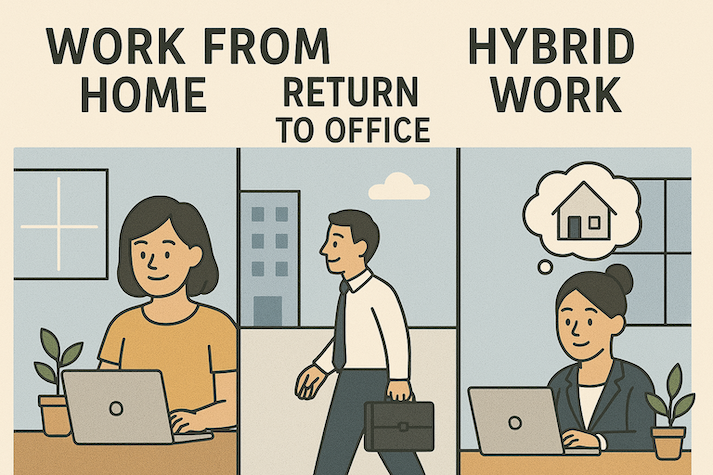The debate over whether to work from home (WFH) or return to the office (RTO) has been ongoing since the pandemic. As we navigate this new landscape, it’s essential to consider the preferences of different generations and the implications for both employees and employers. So, which team are you on? Do you prefer the flexibility of WFH or the camaraderie of RTO?
Interestingly, younger employees are more inclined to prefer working in the office. According to a post by Bryan Berthold on LinkedIn, younger workers want to learn, be mentored, and connect with company culture, which fosters a sense of belonging. This trend is supported by data from Cushman and Wakefield’s Experience per Square Foot™, which found that in 2024, 76% of Gen Z employees preferred going to the office at least once a week, compared to 61% of Baby Boomers who preferred remote work less than once a week. Millennials and Gen X fell in between, with 71% preferring RTO.
Why Younger Generations Prefer RTO
- Learning and Mentorship: Younger employees often seek guidance and mentorship, which is more readily available in an office setting.
- Company Culture: Being in the office allows them to immerse themselves in company culture and build stronger relationships with colleagues.
- Sense of Belonging: The office environment provides a sense of community and belonging, which is crucial for professional growth.
Benefits of Working from Home
As highlighted by Neil Khaund in his article, WFH offers numerous benefits for both employees and employers. These include:
- Increased Mental and Physical Health: Reduced commuting time can lead to better overall health.
- Improved Morale and Engagement: Flexibility often results in higher job satisfaction.
- Increased Productivity: Without office distractions, some employees find they are more productive at home.
- Larger Pool of Qualified Candidates: Remote work opens up hiring possibilities globally.
- Less Office Drama: Reduced interpersonal conflicts can create a more peaceful work environment.
- Lower Overhead Costs: Companies save on office space and utilities.
Benefits of Returning to the Office
On the other hand, RTO has its own set of compelling advantages:
- Direct Collaboration: Face-to-face interactions foster stronger connections between colleagues and management.
- In-Person Interaction: Reduces feelings of loneliness and improves overall well-being.
- Opportunities for Mentorships and Career Enhancement: Being in the office provides more opportunities for learning and career growth.
In recent times, there has been a push towards RTO. For instance, some government officials have mandated a return to in-person work. Think: Donald Trump and Tim Waltz.
Many big companies, such as Amazon, Tesla, and JP Morgan Chase, have also mandated RTO for their employees. In an interview with The New York Times, CEOs like Mr. Merril of Harrison Street emphasize the importance of in-office work for younger employees, stating, “Being in the office makes sense. It’s very important for the younger people to be together. That is where they learn. That is where they grow. That is where you’re going to create upward mobility.”
However, not all companies agree. For example, PwC has allowed employees to work remotely indefinitely, recognizing the shifting expectations of the workforce, as Mr. Tim Ryan, the US Chairman and senior partner at PwC, stated in a 2021 interview with The New York Times.
Given the pros and cons of both WFH and RTO, many professionals are advocating for a hybrid approach. This model combines the flexibility of remote work with the benefits of in-office collaboration. Hybrid work allows employees to maintain a work-life balance, reduce commute time, and enjoy direct mentorships while still having the flexibility to work from home.
Lisa Blair, HR Manager at SmartPA, notes, “Hybrid work isn’t just here to stay—it’s a competitive advantage.” If companies are not in tune with these changes, they are going to lose these young professionals because they don’t just want flexibility – they expect it. They will leave if they don’t get it. Embracing hybrid work as a strategy for productivity, well-being, and long-term success seems the best way to move forward.
